The Women’s Empowerment in Agriculture Index (WEAI), launched by IFPRI, Oxford Poverty and Human Development Initiative (OPHI), and USAID's Feed the Future in February 2012, is the first comprehensive and standardized measure to directly measure women’s empowerment and inclusion in the agricultural sector. The WEAI is an innovative tool composed of two sub-indices: one measures women’s empowerment across five domains in agriculture, and the other measures gender parity in empowerment within the household. The tool also measures women’s empowerment relative to men within their households.
Since the original WEAI release, multiple versions of the WEAI have been developed. The Abbreviated WEAI (A-WEAI) is a shorter version of the original that can be used in population-based surveys to measure women’s empowerment. The Project WEAI (Pro-WEAI) instrument, under development, seeks to measure women’s empowerment within project-specific contexts, and includes optional modules tailored to livestock and/or nutrition and health programs. Pro-WEAI development also draws on qualitative methods to enhance understanding of women’s empowerment in specific social and cultural contexts. The qualitative protocols for pro-WEAI are available here, and the survey instrument will be publicly available in late 2020 (currently available upon request). The pro-WEAI for market inclusion (pro-WEAI+MI), still under development, is intended to measure empowerment across agricultural value chains. Pro-WEAI+MI has been piloted in four countries, Bangladesh, Benin, Malawi and the Philippines. To access all WEAI-related materials – research instruments, protocols, publications, and more – visit the WEAI Resource Center website.
Outputs / Resources

Hazel Malapit
Senior Research Coordinator

Hazel Malapit
Senior Research Coordinator
Ruth Meinzen-Dick
Senior Research Fellow
Agnes Quisumbing
Senior Research Fellow
Jessica Heckert
Research Fellow
Greg Seymour
Research Fellow
Emily Myers
Senior Research Analyst
Ara Go
Senior Program Manager
Measuring women’s empowerment in agriculture: Innovations and evidence
Can a gender-sensitive integrated poultry value chain and nutrition intervention increase women's empowerment among the rural poor in Burkina Faso?
Assessing multicountry programs through a “Reach, Benefit, Empower, Transform” lens
Development and validation of a health and nutrition module for the project-level Women's Empowerment in Agriculture Index (pro-WEAI+HN)
Women's empowerment, extended families and male migration in Nepal: Insights from mixed methods analysis
Understanding the pathways to women’s empowerment in Northern Ghana and the relationship with small-scale irrigation
Women’s Empowerment in Agrifood Governance (WEAGov) assessment framework: A pilot study in Nigeria
WEAI-Climate Stakeholder Consultation Workshop
A multi-country validation and sensitivity analysis of the project level Women’s Empowerment in Agriculture Index (Pro-WEAI)
Uncovering more than a decade of WEAI use in USAID projects
Synopsis: Women’s empowerment in Rwandan agriculture: A baseline assessment in the context of Rwanda’s gender and youth mainstreaming strategy and the fourth strategic plan for agricultural transformation
Empowering women in agriculture: The role of the WEAI in Bangladesh
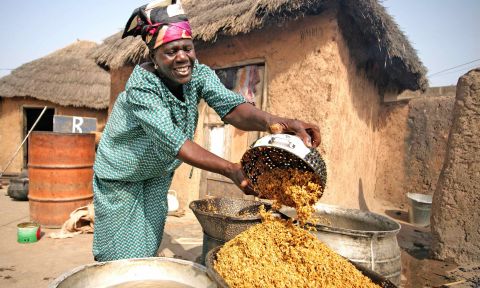 Research Post
Research PostAdapt, assess, progress: Integrating measures of women’s empowerment into rural development projects
 Event Post
Event PostPolicy seminar: Scaling up the new Women’s Empowerment Metric for National Statistical Systems (WEMNS) tool
 Research Post
Research PostMaking a difference: Dumplings and development
 Event Post
Event PostPolicy seminar: New pro-WEAI modules gauge women’s empowerment in nutrition and health, market inclusion
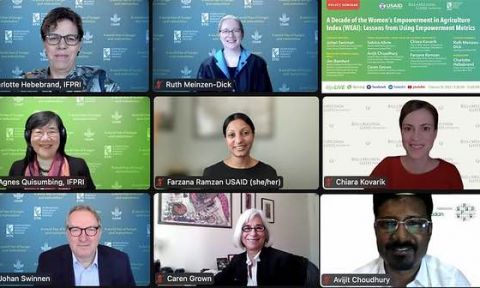 Event Post
Event PostLessons from a decade of the Women’s Empowerment in Agriculture Index (WEAI)
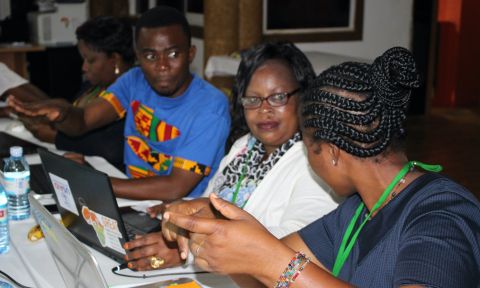 Issue Post
Issue PostNow available: The project-level Women’s Empowerment in Agriculture Index Distance Learning Module
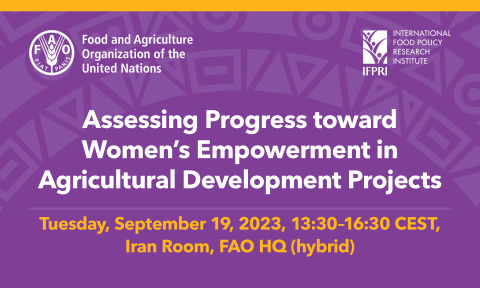 IFPRI at External Event
IFPRI at External EventAssessing Progress toward Women’s Empowerment in Agricultural Development Projects
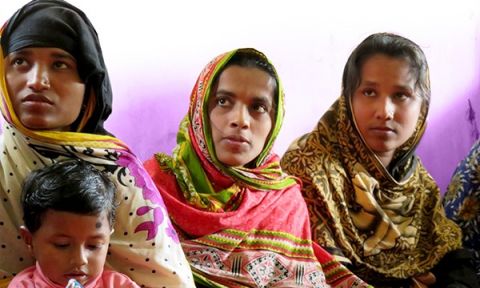 IFPRI Program/Country Event
IFPRI Program/Country EventPro-WEAI: A New Tool for Measuring Women’s Empowerment in Agricultural Development Projects
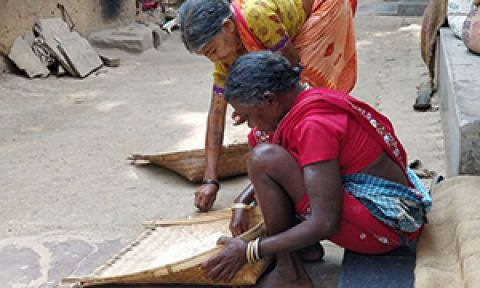 IFPRI Program/Country Event -
IFPRI Program/Country Event -Project-level Women’s Empowerment in Agriculture Index (Pro-WEAI) Learning and Outreach Event
- IFPRI Policy Seminar
WEAI Stakeholder Convening
- In the News
Empowering Africa’s women farmers (Newsday)
- In the News
Empowering Africa’s Women Farmers


